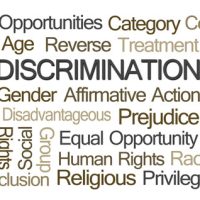New Regulations Make AI Hiring Discrimination Illegal

If you’ve applied for a job in the last year or so, you’ve probably noticed a trend: more and more, it isn’t a human interviewing you, or even evaluating your resume. It’s Artificial Intelligence (AI). But with the rise of AI in hiring decisions, come problems—problems which the state is addressing starting in October of 2025.
The Problem With AI
The problem with using AI to hire people and initially screen job applicants, is that AI doesn’t know how to spot and avoid discrimination, the way that a human being might know how to do.
For example, imagine you are applying to be a secretary and there is a typing test. You are disabled, and thus, cannot type as fast as someone who is healthy, although with some assistive devices (technically, a reasonable accommodation under the Americans with Disabilities Act), you certainly could.
The AI doesn’t see this. It doesn’t recognize your disability, or your ability to do the job with a reasonable accommodation. It just penalizes you for not typing as fast as other applicants. The AI will just “weed you out” before humans ever see your application or read your cover letter. You’ll get a rejection letter or email, never knowing you were discriminated against.
New Regulations in Place
But the State of California is set to do something about this. Starting in October 2025, employers who use AI to hire, must ensure that the AI does not discriminate. Basically, AI has the same obligations as a human person interviewing you would have, and the employer is liable for discrimination, even if the AI “accidentally” discriminates against you.
So, for example, it would be illegal for AI (or any computerized system for screening applicants) to:
1) Punish you for your work schedule, which, in the case of people who observe religious holidays, or in cases of disabled people who may have medical appointments, may not be the same as other applicants
2) Punish you for facial expressions, as many applicants may have disabilities which affect their facial muscles
3) Punish you for any tests that require physical dexterity or reaction times. Again, many ADA-protected disabilities limit people’s physical dexterity.
Additionally, any systems that use AI or computers for screening or testing applicants, must have a place where an applicant can ask for a reasonable accommodation.
Third Parties and Recordkeeping
The law also specifically makes employers liable for any discrimination that is caused by third parties—many companies use third party software or AI vendors to screen out applicants, and those employers cannot just blame that third party vendor for discrimination. Both the employer, and the vendor, can be sued for discrimination if it exists.
There are also recordkeeping requirements, which affect employers more than employees, but which will at least ensure that important documents are preserved, in the event a discrimination lawsuit is filed by an aggrieved employee.
Have you been discriminated against at work? Contact the San Jose employment attorneys at the Costanzo Law Firm today for help.
Sources:
calcivilrights.ca.gov/2025/06/30/civil-rights-council-secures-approval-for-regulations-to-protect-against-employment-discrimination-related-to-artificial-intelligence/
natlawreview.com/article/beyond-bias-california-sets-new-standard-regulating-ai-workplace
dataprotectionreport.com/2025/07/californias-anti-employment-discrimination-regulations-now-include-ai-expand-retention-requirements/
